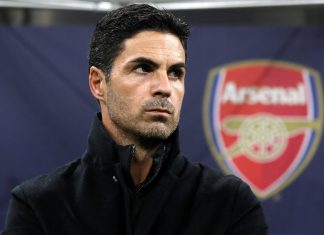Having played both sides away from home so far this season, Arsenal could recover with home victories against both sides, but until the club have won one game against one of these teams it will be difficult for many to consider them serious title challengers.
Many reasons have been ascribed to Arsenal’s failure in these games. Some say it is a lack of bottle. Others point at the opposition and say that they just are not good enough to take on the very best teams. Others suggest it is experience. Few, if any, suggest probably the most perceptive and relevant explanation – formation.
Two seasons ago, a significantly weaker Arsenal side beat Manchester United at the Emirates and Chelsea at Stamford Bridge during the first half of an awful season for the club. Back then, it was said that Arsenal could get up for the big games but not for the small ones. Now they are accused of the opposite. The arguments do not stack up.
What is more perceptive, is that a fundamental change in Arsenal’s playing style has taken place. The club have played 4-3-3 since the season they last beat their two biggest rivals, and this marks the most important reason for their failures in games against their main title challengers.
With 4-3-3, Arsenal have one player isolated up front. This can work, but is less likely to do so against Manchester United or Chelsea. With either Vidic and Ferdinand or Terry & Carvalho/Alex up against Robin van Persie or now Marouane Chamakh, the central striker is isolated against a combination of an extremely physical defender and a technically astute one. This means that when Arsenal get the ball into their central striker, they are unable to retain possession effectively, which is crucial for 4-3-3 to work. Arsenal invariably dominate possession against these two sides, but they struggle in the final third. With a 4-4-2 system, Arsenal would be able to work the space far more effectively in these games. If you consider the Arsenal V Manchester United game when Arsenal last won, Samir Nasri scored twice and the second goal came after a 20+ pass move. The ball eventually came to Nasri who was moving into space created because Vidic was dragged away from him by an overlapping run by Theo Walcott. Arsenal won in this match because they had more players occupying the Manchester United centre backs. With 4-3-3, there is always a spare defender for the opponent, and when you are up against two teams whose defence is arguably their strong point, in particular the centre-back area, this is the fundamental reason that it will fail.
It has very little to do with the side’s mental toughness, their ability or how they react when the going gets tough. It’s a fundamental error of Wenger’s tactics. Once Arsenal start deploying a second striker in these games, they may again begin to win them.







